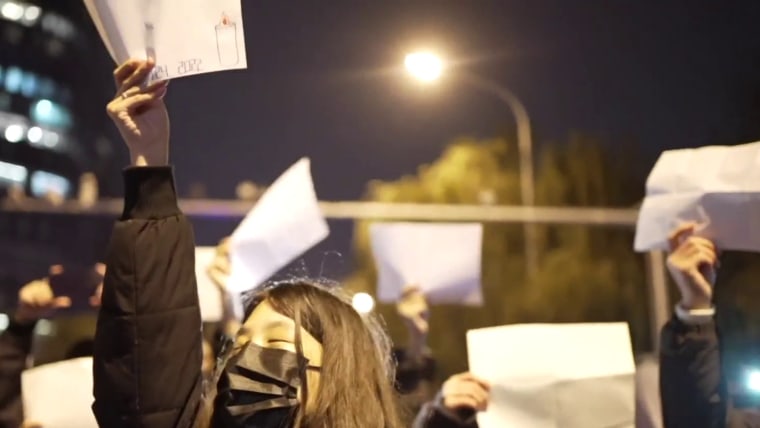
When I first started investigating China’s top spy agency in 2020 for my book, “Spies and Lies: How China’s Greatest Covert Operations Fooled the World,” I thought espionage was its main game. But I soon realized that the Ministry of State Security’s covert influence operations have been at the forefront of its work to shape the world and our understanding of China. The United States must come to grips with China’s global covert power as Xi Jinping doubles down on international aggression, or risk allowing even more Chinese Communist Party interference in civil liberties and the functioning of democracy.
In October, the Justice Department charged 13 people with plotting to covertly advance China’s interests in the United States. Several of those charged are allegedly officers of China’s Ministry of State Security.
I soon realized that the Ministry of State Security’s covert influence operations have been at the forefront of its work to shape the world.
China’s spies have come a long way. According to interviews I conducted with former intelligence officers for my book, until the late 1990s, Ministry of State Security officers were cautious and attracted little scrutiny. MSS officer Yu Qiangsheng’s defection to the CIA in 1985 dealt a major blow to Chinese leaders’ trust in the ministry. China was opening up to the world and trying to do business, and it didn’t want to be caught engaging in subversive activities.
And yet, the MSS thrived in spite of these constraints. It couldn’t roam free abroad, so the organization first made sure it was everywhere inside China; weaving itself into all important avenues for international exchange, from tourism to the sciences to academia. I found in my research that when perceived threats like George Soros arrived in China, seeking to promote liberalism in the period before the 1989 Tiananmen Square massacre, MSS officers moved in to monitor and restrict their activities.
From this foundation, the MSS grew more confident and increasingly international. In the aftermath of China’s effort to funnel donations to President Bill Clinton — sometimes known as “Chinagate” — I found one top MSS spy’s recommendations for strengthening influence on the U.S. Congress. Agents seemed to understand that influence is a long-term game in which victories are often intangible.
These MSS influence operatives infiltrated policymaking and academic communities, using the veneer of intellectual discourse to plant ideas. The theory of China’s peaceful rise — the idea, proposed in 2003, that China would develop and grow in power without confronting the United States — is one of the more influential ideas that I argue originated with Chinese intelligence.
MSS influence operatives infiltrated policymaking and academic communities, using the veneer of intellectual discourse to plant ideas.
Indeed, I believe we should question whether peaceful rise was ever the plan. Heeding Deng Xiaoping’s guidance to “hide your strength and bide your time,” there is mounting evidence that past Chinese leaders were simply quieter about their ambitions and opposition to the West. As scholar Rush Doshi argues, they were preparing for a time when China would be strong enough to challenge the United States.
Only in the past few years have Western intelligence agencies started waking up to these sophisticated and extensive operations. The Justice Department is suing businessman and former Republican Party booster Steve Wynn, alleging that he failed to register as a foreign agent for China when he sought to influence President Donald Trump in 2017. In January 2022, the United Kingdom’s security service warned parliamentarians that a donor and self-appointed Chinese community figure was an influence agent of the Chinese Communist Party.
This is only the very beginning of a process of learning about and countering China’s external influence. Many countries, including the United States, are working to combat espionage but lack laws suited to tackling covert influence operations. And many of these governments are playing catch up as they belatedly increase resourcing for China work.
Most importantly, security agencies will have to get more comfortable operating in the light. Traditional spy-catching focuses on tracking and controlling hostile activity in secret, but covert influence can often be countered by intervening early and publicly. Intelligence agencies still chronically underinvest in open-source research, which makes it hard to prosecute cases and even inform government colleagues about threats. The alternative to confronting this challenge is to accept interference in our communities and policymaking processes. Once the public and policymakers can understand and guard against covert operations, informed by targeted legislation and careful analysis of openly available Chinese-language materials, governments may finally be able to beat Beijing’s influence game.
 Latest Breaking News Online News Portal
Latest Breaking News Online News Portal






